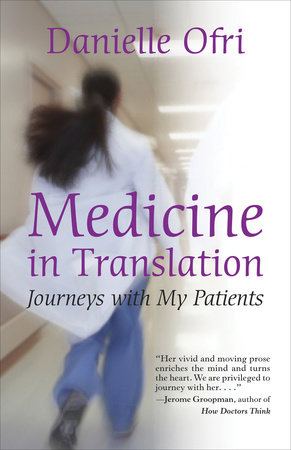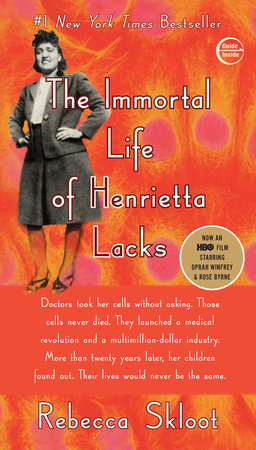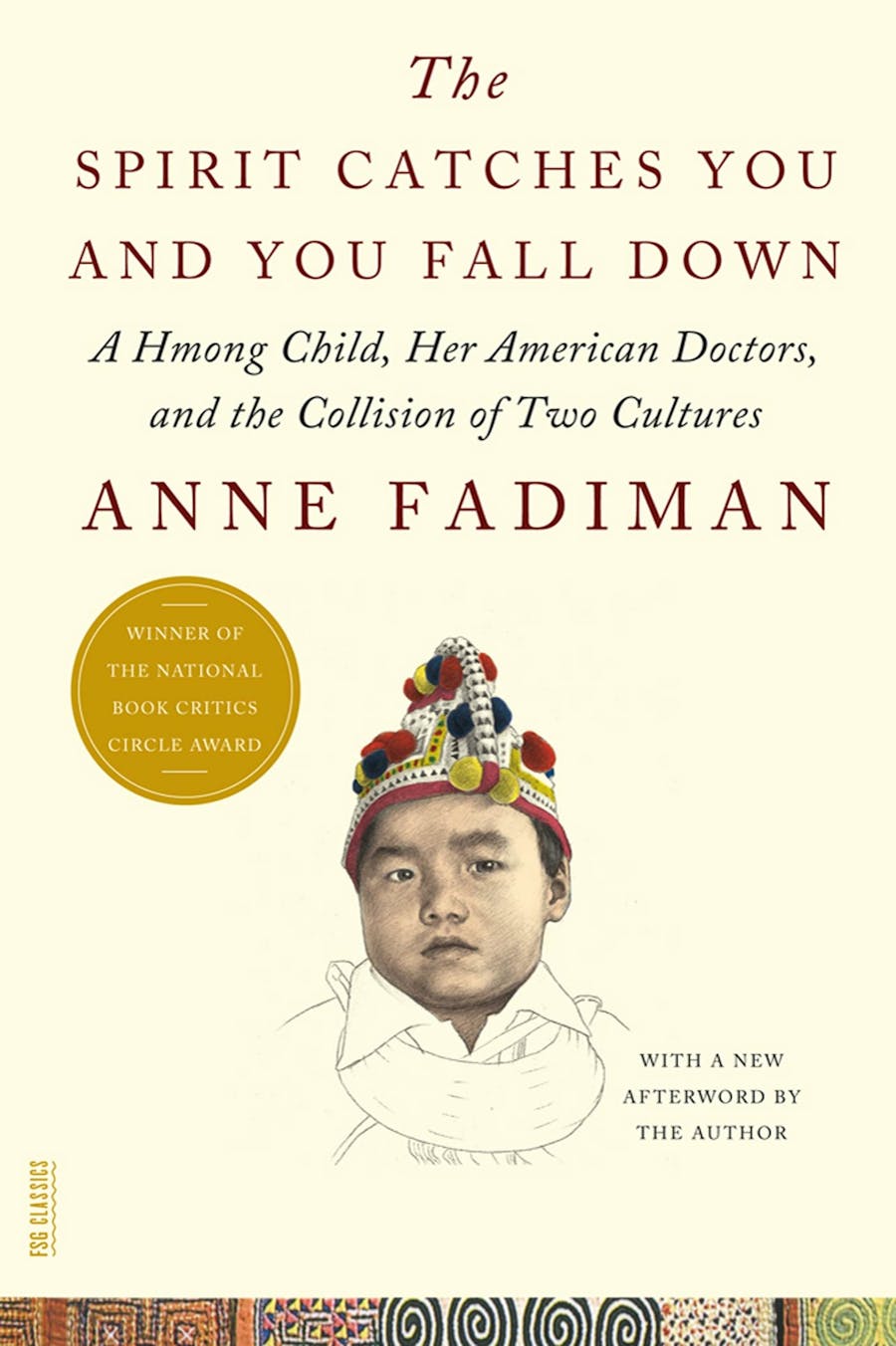

For two decades, Dr. Danielle Ofri has cared for patients at Bellevue, the oldest public hospital in the country and a crossroads for the world’s cultures. In Medicine in Translation she introduces us, in vivid, moving portraits, to her patients, who have braved language barriers, religious and racial divides, and the emotional and practical difficulties of exile in order to access quality health care. Living and dying in the foreign country we call home, they have much to teach us about the American way, in sickness and in health.
An important theme in this book is cultural competency in healthcare. To learn more about this topic, check out our Cultural Competency in Healthcare LibGuide.
Most of the books on this guide are available through the MCPHS Libraries; however, we have included a book that we recommend but is not available at MCPHS. We have set up the link for this book to redirect to WorldCat so you can find it at your local library!

Her name was Henrietta Lacks, but scientists know her as HeLa. She was a poor Southern tobacco farmer who worked the same land as her slave ancestors, yet her cells—taken without her knowledge—became one of the most important tools in medicine: The first “immortal” human cells grown in culture, which are still alive today, though she has been dead for more than sixty years. HeLa cells were vital for developing the polio vaccine; uncovered secrets of cancer, viruses, and the atom bomb’s effects; helped lead to important advances like in vitro fertilization, cloning, and gene mapping; and have been bought and sold by the billions. Yet Henrietta Lacks remains virtually unknown, buried in an unmarked grave. Henrietta’s family did not learn of her “immortality” until more than twenty years after her death, when scientists investigating HeLa began using her husband and children in research without informed consent. And though the cells had launched a multimillion-dollar industry that sells human biological materials, her family never saw any of the profits. As Rebecca Skloot so brilliantly shows, the story of the Lacks family—past and present—is inextricably connected to the dark history of experimentation on African Americans, the birth of bioethics, and the legal battles over whether we control the stuff we are made of. Over the decade it took to uncover this story, Rebecca became enmeshed in the lives of the Lacks family—especially Henrietta’s daughter Deborah. Deborah was consumed with questions: Had scientists cloned her mother? Had they killed her to harvest her cells? And if her mother was so important to medicine, why couldn’t her children afford health insurance? Intimate in feeling, astonishing in scope, and impossible to put down, The Immortal Life of Henrietta Lacks captures the beauty and drama of scientific discovery, as well as its human consequences.
 Better by Atul Gawande
Better by Atul Gawande
The struggle to perform well is universal: each one of us faces fatigue, limited resources, and imperfect abilities in whatever we do. But nowhere is this drive to do better more important than in medicine, where lives are on the line with every decision. In this book, Atul Gawande explores how doctors strive to close the gap between best intentions and best performance in the face of obstacles that sometimes seem insurmountable. Gawande's gripping stories of diligence, ingenuity, and what it means to do right by people take us to battlefield surgical tents in Iraq, to labor and delivery rooms in Boston, to a polio outbreak in India, and to malpractice courtrooms around the country. He discusses the ethical dilemmas of doctors' participation in lethal injections, examines the influence of money on modern medicine, and recounts the astoundingly contentious history of hand washing. And as in all his writing, Gawande gives us an inside look at his own life as a practicing surgeon, offering a searingly honest firsthand account of work in a field where mistakes are both unavoidable and unthinkable. At once unflinching and compassionate, Better is an exhilarating journey narrated by "arguably the best nonfiction doctor-writer around" (Salon). Gawande's investigation into medical professionals and how they progress from merely good to great provides rare insight into the elements of success, illuminating every area of human endeavor.
 Black Man in a White Coat by Damon Tweedy, M.D.
Black Man in a White Coat by Damon Tweedy, M.D.
When Damon Tweedy begins medical school, he envisions a bright future where his segregated, working-class background will become largely irrelevant. Instead, he finds that he has joined a new world where race is front and center. The recipient of a scholarship designed to increase Black student enrollment, Tweedy soon meets a professor who bluntly questions whether he belongs in medical school, a moment that crystallizes the challenges he will face throughout his career. Making matters worse, in lecture after lecture the common refrain for numerous diseases resounds, “More common in Blacks than in whites.” Black Man in a White Coat examines the complex ways in which both Black doctors and patients must navigate the difficult and often contradictory terrain of race and medicine. As Tweedy transforms from student to practicing physician, he discovers how often race influences his encounters with patients. Through their stories, he illustrates the complex social, cultural, and economic factors at the root of many health problems in the Black community. These issues take on greater meaning when Tweedy is himself diagnosed with a chronic disease far more common among Black people. In this powerful, moving, and deeply empathic book, Tweedy explores the challenges confronting Black doctors, and the disproportionate health burdens faced by Black patients, ultimately seeking a way forward to better treatment and more compassionate care.
 Seeing Patients by Augustus A. White III, M. D. with David Chanoff
Seeing Patients by Augustus A. White III, M. D. with David Chanoff
If you’re going to have a heart attack, an organ transplant, or a joint replacement, here’s the key to getting the very best medical care: be a white, straight, middle-class male. This book by a pioneering Black surgeon takes on one of the few critically important topics that haven’t figured in the heated debate over health care reform—the largely hidden yet massive injustice of bias in medical treatment. Growing up in Jim Crow–era Tennessee and training and teaching in overwhelmingly white medical institutions, Gus White witnessed firsthand how prejudice works in the world of medicine. And while race relations have changed dramatically, old ways of thinking die hard. In Seeing Patients, White draws upon his experience in startlingly different worlds to make sense of the unconscious bias that riddles medical treatment, and to explore what it means for health care in a diverse twenty-first-century America. White and coauthor David Chanoff use extensive research and interviews with leading physicians to show how subconscious stereotyping influences doctor–patient interactions, diagnosis, and treatment. Their book brings together insights from the worlds of social psychology, neuroscience, and clinical practice to define the issues clearly and, most importantly, to outline a concrete approach to fixing this fundamental inequity in the delivery of health care.
 The Spirit Catches You and You Fall Down by Anne Fadiman.
The Spirit Catches You and You Fall Down by Anne Fadiman.
The Spirit Catches You and You Fall Down explores the clash between a small county hospital in California anda refugee family from Laos over the care of Lia Lee, a Hmong child diagnosed with severe epilepsy. Lia's parents and her doctors both wanted what was best for Lia, but the lack of understanding between them led to tragedy. Winner of the National Book Critics Circle Award for Nonfiction, the Los Angeles Times Book Prize for Current Interest, and the Salon Book Award, Anne Fadiman's compassionate account of this cultural impasse is literary journalism at its finest.